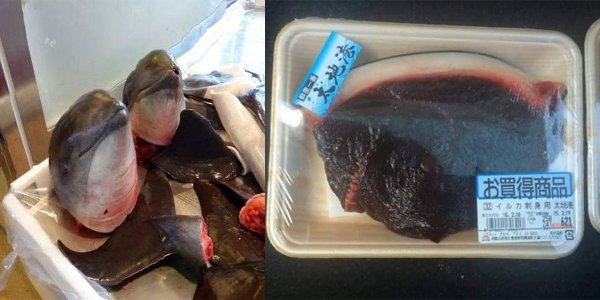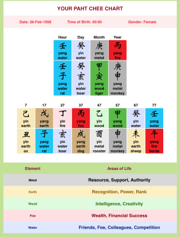This meat sold online poses a ‘serious threat’ to human health, prompting urgent call for ban
Content Warning: This article discusses sensitive content and includes images of dolphins being killed and sold for their meat. Reader discretion is advised.
Buying food online is meant to save us time, money, and the unavoidable hassle of going to the supermarket.
Additionally, it allows us to access a wide variety of global food options with just a few clicks, all from the comfort of our homes.
However, this convenience comes at a cost—a concern that a nearby conservation group is currently alerting us.
Action for Dolphins (AFD), an organisation dedicated to preserving the lives and habitats of dolphins, recently released the results of tests conducted on dolphin meat.
The conservation group bought dolphin meat online from a Japanese company in Taiji, which was tested in a Japanese laboratory.
The tests revealed that the dolphin meat contained mercury levels 265 times higher than Japan's regulatory limit.
This prompted a demand for warning labels and the removal of the meat from sale.
The offal from Risso's dolphins had the highest mercury levels, and even in the case of melon-headed whale meat, the mercury content exceeded the allowable limit by 16 times.
The findings followed the country’s resumption of dolphin hunting in September, which involved a large-scale ocean-based operation located in the city of Taiji, situated to the south of Osaka.
AFD has examined various meat samples dating as far back as 2020.
‘These are the highest mercury results we have ever seen. Especially if consumed frequently, this meat poses a serious threat to human health and should be removed from sale,’ said its Australian-based CEO Hannah Tait.
AFD’s attempts to engage Japanese authorities have faced challenges, prompting a shift in focus to educating consumers about the risks of consuming dolphin meat.
Video source: Facebook/@RicOBarrysDolphinProject
Japan is among a small number of countries that still permit the harvesting of wild dolphins and whales for their meat.
Another such nation is the Faroe Islands, but their authorities adopt a more cautious stance by advising children, pregnant women, and individuals in general to limit their consumption of this meat.
‘In Japan, anyone can buy it online but there are no health warnings on the meat that there are such unbelievably high levels of mercury,’ Tait added.
‘We’d like to see it removed from sale because it’s been consistently shown to have high levels of mercury.’
Mercury’s effects on humans
Mercury, a naturally occurring element in the environment, can be found in air, water, and soil.
Minimal exposure to mercury can lead to serious health issues by adversely affecting various bodily systems, including the nervous, digestive, and immune systems, as well as the lungs, kidneys, skin, and eyes.
The World Health Organisation (WHO) considers mercury one of the top ten chemicals of major public health concern.

Members, have any of you tried dolphin meat, or do you want to try it? What does it taste like? Share your experiences in the comments below!
Buying food online is meant to save us time, money, and the unavoidable hassle of going to the supermarket.
Additionally, it allows us to access a wide variety of global food options with just a few clicks, all from the comfort of our homes.
However, this convenience comes at a cost—a concern that a nearby conservation group is currently alerting us.
Action for Dolphins (AFD), an organisation dedicated to preserving the lives and habitats of dolphins, recently released the results of tests conducted on dolphin meat.
The conservation group bought dolphin meat online from a Japanese company in Taiji, which was tested in a Japanese laboratory.
The tests revealed that the dolphin meat contained mercury levels 265 times higher than Japan's regulatory limit.
This prompted a demand for warning labels and the removal of the meat from sale.
The offal from Risso's dolphins had the highest mercury levels, and even in the case of melon-headed whale meat, the mercury content exceeded the allowable limit by 16 times.
The findings followed the country’s resumption of dolphin hunting in September, which involved a large-scale ocean-based operation located in the city of Taiji, situated to the south of Osaka.
AFD has examined various meat samples dating as far back as 2020.
‘These are the highest mercury results we have ever seen. Especially if consumed frequently, this meat poses a serious threat to human health and should be removed from sale,’ said its Australian-based CEO Hannah Tait.
AFD’s attempts to engage Japanese authorities have faced challenges, prompting a shift in focus to educating consumers about the risks of consuming dolphin meat.
Video source: Facebook/@RicOBarrysDolphinProject
Japan is among a small number of countries that still permit the harvesting of wild dolphins and whales for their meat.
Another such nation is the Faroe Islands, but their authorities adopt a more cautious stance by advising children, pregnant women, and individuals in general to limit their consumption of this meat.
‘In Japan, anyone can buy it online but there are no health warnings on the meat that there are such unbelievably high levels of mercury,’ Tait added.
‘We’d like to see it removed from sale because it’s been consistently shown to have high levels of mercury.’
Mercury’s effects on humans
Mercury, a naturally occurring element in the environment, can be found in air, water, and soil.
Minimal exposure to mercury can lead to serious health issues by adversely affecting various bodily systems, including the nervous, digestive, and immune systems, as well as the lungs, kidneys, skin, and eyes.
The World Health Organisation (WHO) considers mercury one of the top ten chemicals of major public health concern.
Key Takeaways
- Testing of dolphin meat bought online from a Japanese company found it contains mercury levels 265 times the country’s regulatory limit.
- The meat was bought online by the conservation group Action for Dolphins, which has found increasingly high levels of mercury in their tests since 2020.
- Despite attempts by the group, Japanese authorities have not taken action.
Last edited:








